© 2023 Dr Margaret Sheppard
Coconuts
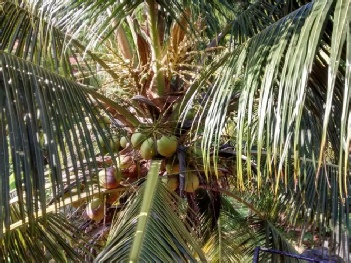
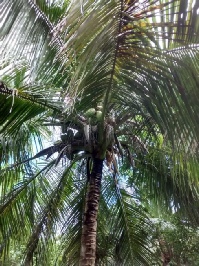
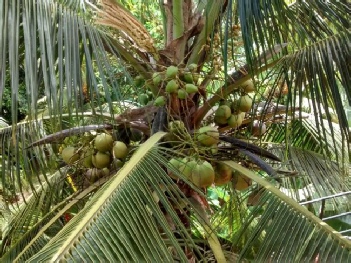
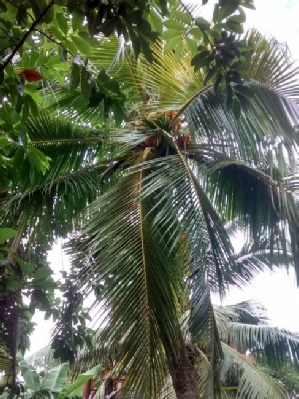
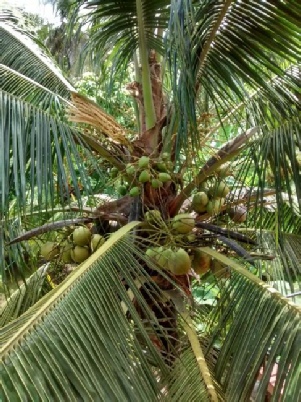
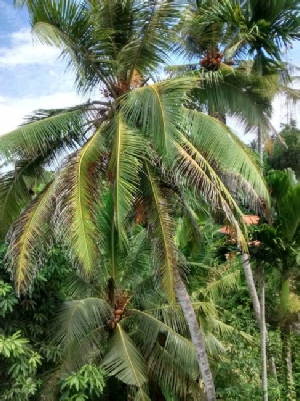
Coconut trees are a common sight over most parts of Sri Lanka. Many are grown in gardens whilst others are grown commercially in coconut plantations.
This is a very important and productive tree. Coconut is an important ingredient of the Sri Lankan diet. The white flesh is grated and squeezed to produce coconut milk which features strongly in Sri Lankan cooking. The juice makes a refreshing drink, often sold by roadside vendors and drunk straight from the coconut.
The flesh can be dried and then squeezed to produce coconut oil used in cooking and for cosmetics. Dried shells are made into coconut cooking spoons. The outer shells are used for garden bed edgings and the fibres for making string and rope.
The fronds can be woven into coconut thatching sheets for roofing or shelters. The trunks are used for roof timbers.
These are the traditional uses but now there are often other bi-
There are several varieties of coconut trees. Some produce green coconut husks and others orange coloured husks. Other types produce the “berries” and sap from which the “coconut honey” is made. Coconut toddy (an alcoholic drink) is another product.
Coconuts form an important part of pujah (offerings) and the oil is mixed with other ingredients for herbal medicines.
The coconuts ripen every two or three months and are picked by coconut pickers (see section on Pickers). The pickers also need to manage the fronds, cutting out the unsafe ones. It is very dangerous to seek the shade of coconut trees as every year falling coconuts and fronds damage not only buildings but cause injury and even fatalities. Guides frequently need to warn tourists against these dangers.
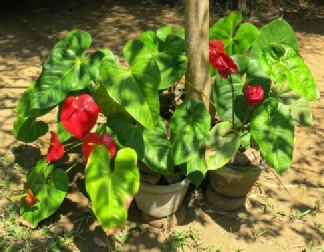
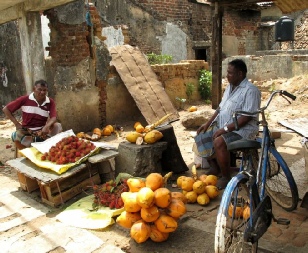
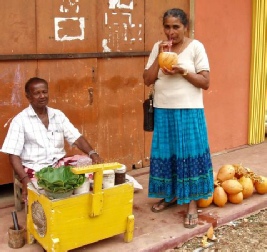
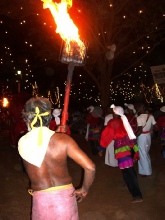
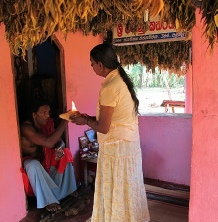
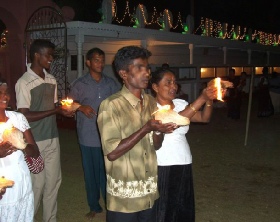
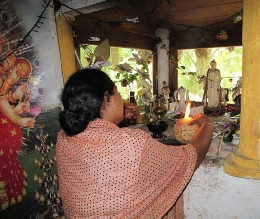
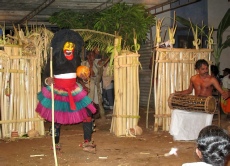
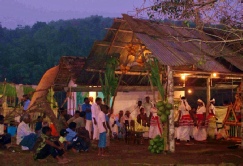
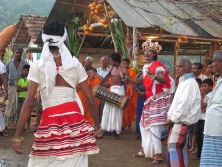
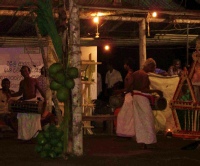
Anthurium flowers are a garden favourite. Coconut husks are commonly used to promote growth.
Roadside stalls selling refreshing coconut drinks. The seller cuts off the end with a machete and makes a hole through the white flesh.
Coconuts feature in many traditional ceremonies, cures and offerings.
(See sections on Peraheras, Clairvoyants, Pujah Offerings, Tovils and Pattini Ceremonies for further details.)
Tambili (coconut Paliya -
Structures at Pattini Ceremonies decorated with coconuts.

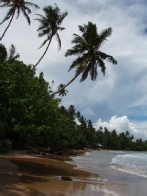


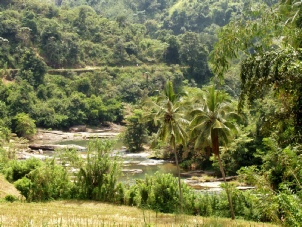
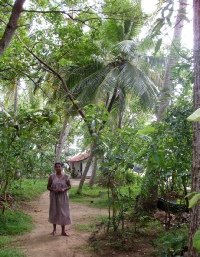
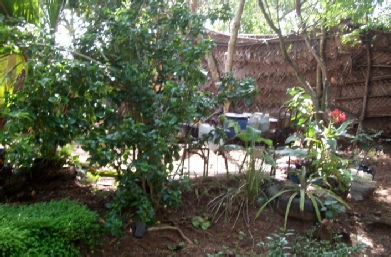
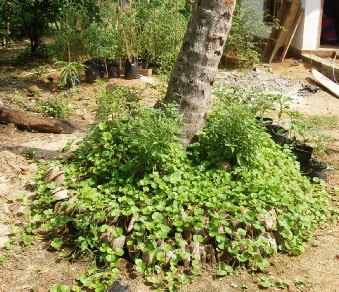
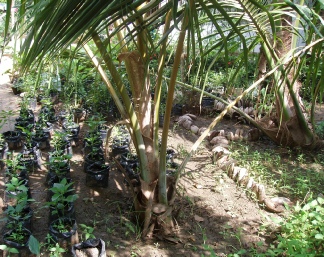
Coconut husks are often used as edging around plants and flower beds
